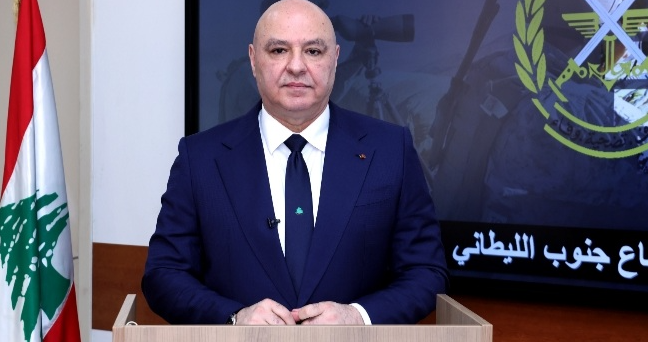
On the occasion of the 82nd anniversary of Lebanon’s Independence, President Joseph Aoun delivered a speech Friday evening from South Lebanon, focusing on sovereignty, the state’s exclusive control over arms, and the need to turn the page on “mini-states.”
The head of state unveiled a five-point plan aimed at fully restoring state authority along the southern border and aligning Lebanon with ongoing regional developments.
A five-point plan to consolidate sovereignty
President Aoun announced:
-
The Lebanese State’s immediate readiness to provide the ceasefire monitoring mechanism with a detailed timetable for the recovery of occupied points in the South.
-
The Lebanese Army’s commitment to retake these positions once violations cease and the Israeli army withdraws from all disputed points.
-
An official request that the monitoring mechanism ensure that the Lebanese Armed Forces alone control the area south of the Litani River.
-
Lebanon’s willingness to launch negotiations – under UN, U.S., or international auspices – to reach a final agreement ending all “cross-border aggressions.”
-
The establishment of an international mechanism, supervised by Lebanon’s “brotherly and friendly” nations, to support the Lebanese Army and rebuild areas devastated by the conflict. “This guarantees and accelerates the achievement of the final and unwavering national objective: restoring the State’s monopoly over weapons throughout Lebanese territory.”
The president also stressed the international dimension of this initiative, noting that it mobilizes “all the friends of Lebanon, concerned and sincere” in their efforts to support the country’s stability and secure its borders. He asserted that Beirut stands “ready” and fully “committed” to this process, describing it as a collective opportunity to consolidate peace and strengthen state authority.
Toward a “renewal” of independence
Anchoring his message in Lebanon’s history, Joseph Aoun emphasized that the country is entering “a decisive period,” reiterating his intention to “build a State and not a mini-state, and restore the culture of the State without reproducing past distortions and clientelism.”
He also warned against two opposing forms of denial: those who pretend that nothing has changed regionally, and those who behave as if an entire segment of Lebanese society has “disappeared” – in reference to the Shia community and Hezbollah supporters.
The president insisted on rejecting all forms of communal exclusion: “They are Lebanese. They are our compatriots and the sons of this land. We will continue to live together.”
An economy “in recovery”
The president then turned to the economic situation, portraying recovery as a pillar of renewed independence. According to him, economic indicators show that Lebanon is recovering, “far from illusions,” thanks to the “wise and reasonable management” of government authorities and the central bank, whose governance he praised.
He added that the latter “is the target of smear campaigns orchestrated by those who do not want a State in Lebanon.”
He also noted signs of renewed confidence within the diaspora and rising hope among Lebanese citizens.
Restoring the culture of the State
Aoun reiterated the need to restore the culture of the State, in contrast with anarchy and the logic of “mini-states.” He stressed that violations of public property, public funds or public space will no longer be tolerated, asserting that “all this is now rejected by all Lebanese.”
He also called for national loyalty to prevail over any external allegiance.
The president acknowledged that his position draws criticism “from both sides,” but insisted that the presidential line remains firm: “To build a State, not a mini-state.”
A perspective of peace and a symbolic landmark
Aoun recalled that the upcoming visit of Pope Leo XIV, under the theme “Blessed are the peacemakers,” reinforces this momentum of national unity.
He argued that Lebanon is firmly engaged in a peace-oriented trajectory, reminding that the Lebanese are “a people who believe in peace and seek it.” He noted that the region is moving toward “greater stability” and the “reactivation of a peace based on rights and justice,” particularly “for Palestine and the Palestinian people,” and affirmed that Lebanon is “ready to engage fully and effectively” in this process.



Comments